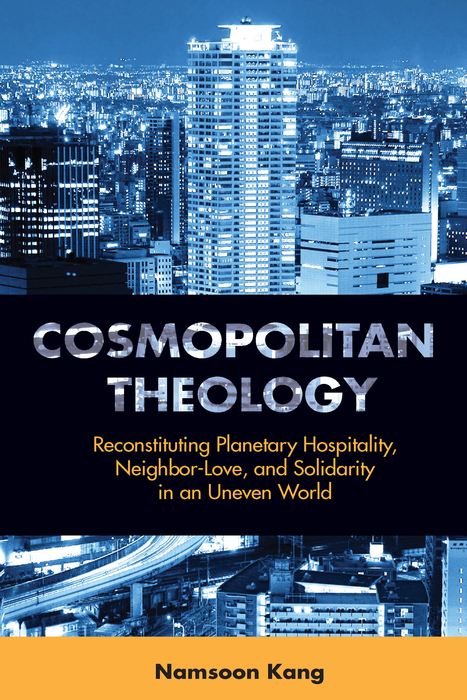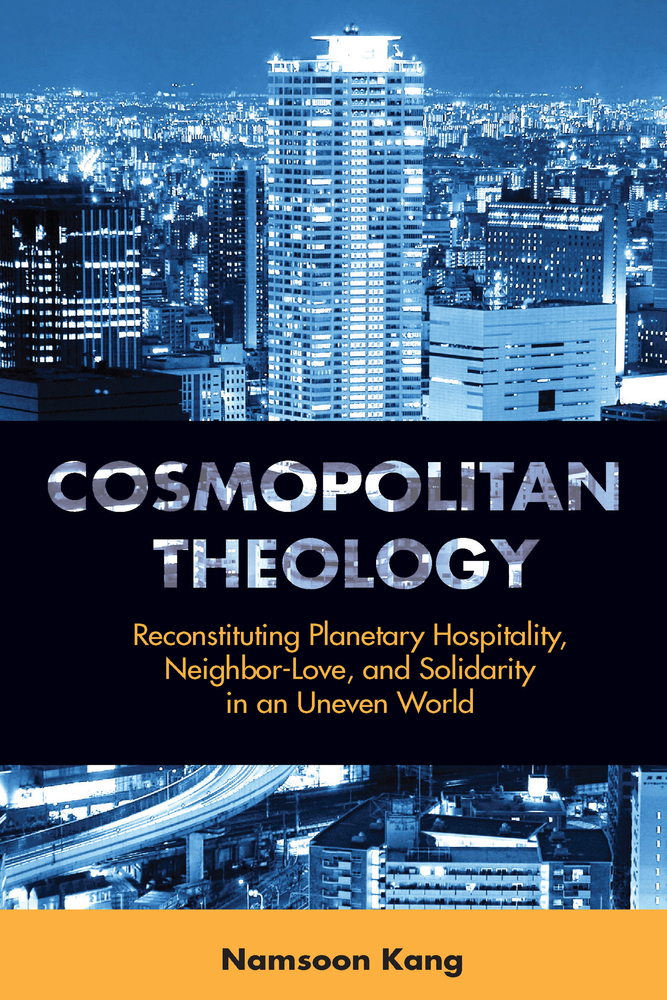Cosmopolitan Theology: Reconstituting Planetary Hospitality, Neighbor-Love, and Solidarity in an Uneven World
by Namsoon Kang
In Cosmopolitan Theology, Namsoon Kang proposes a theology that embraces and at the same time moves beyond collective identity position and group-based allegiances. It crosses borders of gender, race, nationality, religion, ethnicity, sexuality, and ability. Kang offers a vision of a global community of radical inclusion, solidarity, and deep compassion and justice for others. Blending theology with philosophy, she crosses borders of academism and activism, and the discursive borders of modernism, postmodernism, feminism, and postcolonialism.
Cosmopolitan Theology sheds a new light both in academia and the community of Christian believers by providing a public relevance of Jesus' teaching of neighbor-love, hospitality, and solidarity in our world today.
Endorsements
"If Kang’s convivial cosmopolitics lead the way to a ‘public theology to-come’ –and it just im/possibly might–what good news for a world of boundless diversity. This is a work of visionary wisdom and conceptual brilliance, plying theory and its practice with the attractive force of a hospitable cosmos." –Catherine Keller, professor of constructive theology, Drew University, author of On the Mystery and co-editor of Polydoxy: Theology of Relation and Multiplicity.
"In Cosmopolitan Theology Namsoon Kang forges a powerful and well informed argument for cosmopolitanism, not as a faceless universalism but as a universality of the singular and unique. Invoking the ancient Biblical motif of neighbor love which is joined with a postmodern meditation on singularity, alterity and hospitality, the result is an engaging and engaged plea for planetary political solidarity and religious compassion--what she describes as a 'public theology to come.' A book for everyone and about everyone." –John D. Caputo, professor emeritus, Syracuse University
"As we can no longer deny the cosmopolitan reality in which we find ourselves, for good or for ill, the question is which cosmopolitan perspectives to embrace. In this book, Namsoon Kang provides helpful roadmaps and constructive proposals. What is the place of the fashionable cosmopolitanisms of multiculturalism and easygoing difference and of the alternative cosmopolitanisms of global justice, compassion, and love? Theology becomes a guide to new forms of solidarity, illuminating the flows of power that characterize the different options."
–Joerg Rieger, Perkins School of Theology, SMU


